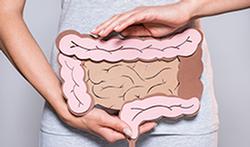You don't see them, but they are there: microorganisms. When we talk about it, we often think about diseases, infections and infections. But microorganisms also play an essential role in our lives and they make life on earth possible. Discover in this article how microorganisms promote your health.
What are microorganisms?
A microorganism (or microbe) is a living creature that is so small that it is invisible to the naked eye. Life on earth would be impossible without microorganisms. That's how important they are.
How microorganisms can be friend and foe
There are a number of pathogenic, or pathogenic, microorganisms that are harmful to our health. Yet most bacteria are not actually harmful. On the contrary, we need them to protect us against other pathogens. We have a whole collection of micro-organisms all over the body that help us with this, such as in the mouth and on the skin. These collections are called the microbiota. View it as a kind of living barrier without which pathogens would get free access to our bodies.
The smallest inhabitants of this invisible world? The bacterium!
It is one of the smallest microorganisms and fits more than 1 million times on the tip of a needle.
The most well-known and studied microbiota is that of our intestines: the gut microbiota, popularly known as "gut flora". It plays an essential role in our lives and the functioning of our bodies. The majority of bacteria are found in our digestive system. No wonder, if you know that the surface of our digestive system is around 300m². This corresponds to the surface of 1 tennis court!
How does gut microbiota affect your health?
Intestinal bacteria are essential for your health and well-being. They play a role in various body functions:
- They make vitamins
- They support the immune system
- They contribute to the proper functioning of the intestines
- They offer protection against harmful microorganisms
- They would play a role in the prevention and treatment of various chronic diseases such as obesity and type 2 diabetes
What is the ideal gut microbiota? This depends on person to person. The composition of your "intestinal flora" is unique; which bacteria are present in it and in what amount is different for each person. It also varies with age and is sensitive to changes in the environment, intake of medicines (such as antibiotics), changes in diet, stress, ...
Research does show that your gut microbiota can be in or out of balance. For good health it is important that there is a balance between the good and bad gut bacteria in our body. In addition, a link was also established between certain diseases (metabolic syndrome, obesity, type 2 diabetes or also known as diabetes) and an unbalanced "intestinal flora".
7 tips for an "intestinal flora" in balance
Because environmental factors can get the gut microbiota out of balance, or can improve it, it is essential to create optimal conditions as far as possible. Now the question is of course how to balance the gut microbiota in practical terms. The combination between a healthy and active lifestyle with a balanced diet has a positive effect on good intestinal bacteria.
We already give you 7 tips that you can use to get started:
- Adhere to a balanced and varied diet
- Eat enough fruit, vegetables, nuts and seeds
- Prefer whole-grain cereal products
- Drink enough water (1.5 l / day)
- Eat fermented foods (eg yogurt, bread, kefir, etc.)
- Do not smoke or try to stop
- Move enough daily (this should not necessarily be a sport: take the stairs more often, park your car a little further, walk the dog, etc.)




